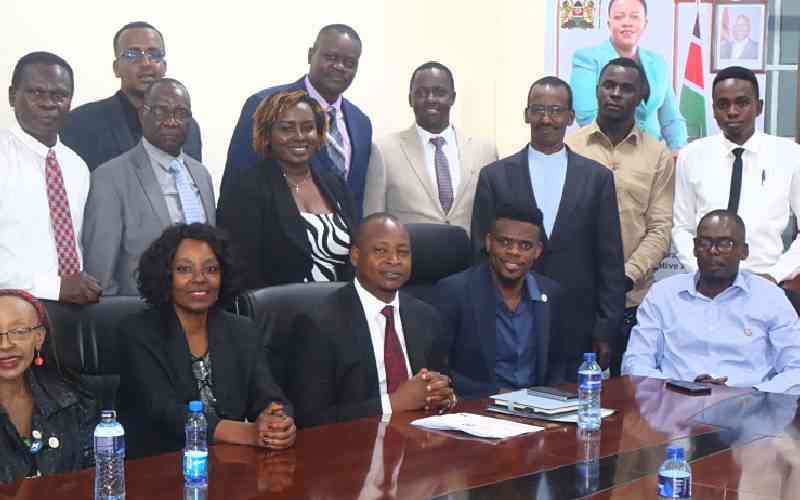
A significant shift is underway in the political landscape as Kenyans living abroad push for constitutional reform to secure representation in Parliament.
Last month, a delegation of over 20 influential diaspora leaders from countries such as US, UK, France, Saudi Arabia, and Uganda met with Kenyan political and legal leaders to support a Bill aiming to amend the Constitution.
If passed, the amendment would recognise Kenyans abroad as a marginalised community and guarantee their representation in Parliament.
The delegation, led by Danson Mukile from US, highlighted the vital role the diaspora plays in Kenya's development and called for their contributions to be reflected in the nation's political processes.
The proposed Bill would require the Independent Electoral and Boundaries Commission (IEBC) to ensure political parties nominate diaspora representatives, giving them a voice in Kenya's legislative matters.
The four-day series of meetings in Kenya featured high-profile discussions with figures such as the Justice and Legal Affairs Parliamentary Committee, the Law Society of Kenya, the Katiba Institute, and political leaders, including former Prime Minister Raila Odinga and Wiper Democratic Party leader Kalonzo Musyoka. They also met with Senator Okiya Omtatah and Roseline Njogu, the Permanent Secretary for Diaspora Affairs, to discuss the proposal.
The engagement of the IEBC in the discussions is crucial, as it would be responsible for implementing changes related to diaspora representation, such as establishing voting mechanisms and overseeing nominations.
Key political figures, including Odinga and Musyoka, expressed strong support for the diaspora's push, emphasising the importance of involving all Kenyans in shaping the nation's future. Odinga, acknowledging the diaspora's significant contributions through remittances, emphasised the need to formalise their political inclusion. Musyoka, an advocate for marginalised groups, agreed that the diaspora should have a dedicated seat in Kenya's political system.
The delegation proposed other reforms to enhance diaspora political involvement. A key proposal was to establish more voting centres abroad to increase access for Kenyan voters living overseas. Currently, logistical and financial barriers often prevent many from participating in elections.
Additionally, the delegates argued for a nominations process for diaspora representatives, which would be more practical than organising elections across different countries, time zones, and legal systems.
The recruitment of polling clerks from the diaspora was also suggested to streamline the election process, ensuring familiarity and accessibility.
Temporary voting centres could further reduce travel barriers, making voting more convenient for those living in countries without established voting stations.
The push for diaspora representation is a historic step toward empowering millions of Kenyans abroad. The diaspora is no longer a passive player in Kenya's politics. They are actively shaping Kenya's future and deserve a louder voice.
The proposed amendments to Articles 97 and 100 of the Constitution would not require additional parliamentary seats but would redistribute existing seats allocated to marginalised communities to include the diaspora. This avoids the need for a referendum, making the process more feasible and cost-effective.
While the proposal has garnered significant support, it faces challenges. Critics argue that diaspora representation could disrupt the balance of power in Parliament, especially in a political environment already sensitive to ethnic and regional dynamics. Additionally, logistical challenges related to nominations and ensuring accountability for diaspora representatives remain contentious.
Despite these challenges, supporters remain optimistic, citing the growing unity among diaspora communities and the willingness of Kenyan political and legal players to engage in dialogue.
The proposed Bill is a potential turning point for Kenyans abroad, who have long been excluded from the political process despite their significant contributions to the Kenyan economy.
 The Standard Group Plc is a multi-media organization with investments in media
platforms spanning newspaper print
operations, television, radio broadcasting, digital and online services. The
Standard Group is recognized as a
leading multi-media house in Kenya with a key influence in matters of national and
international interest.
The Standard Group Plc is a multi-media organization with investments in media
platforms spanning newspaper print
operations, television, radio broadcasting, digital and online services. The
Standard Group is recognized as a
leading multi-media house in Kenya with a key influence in matters of national and
international interest.
